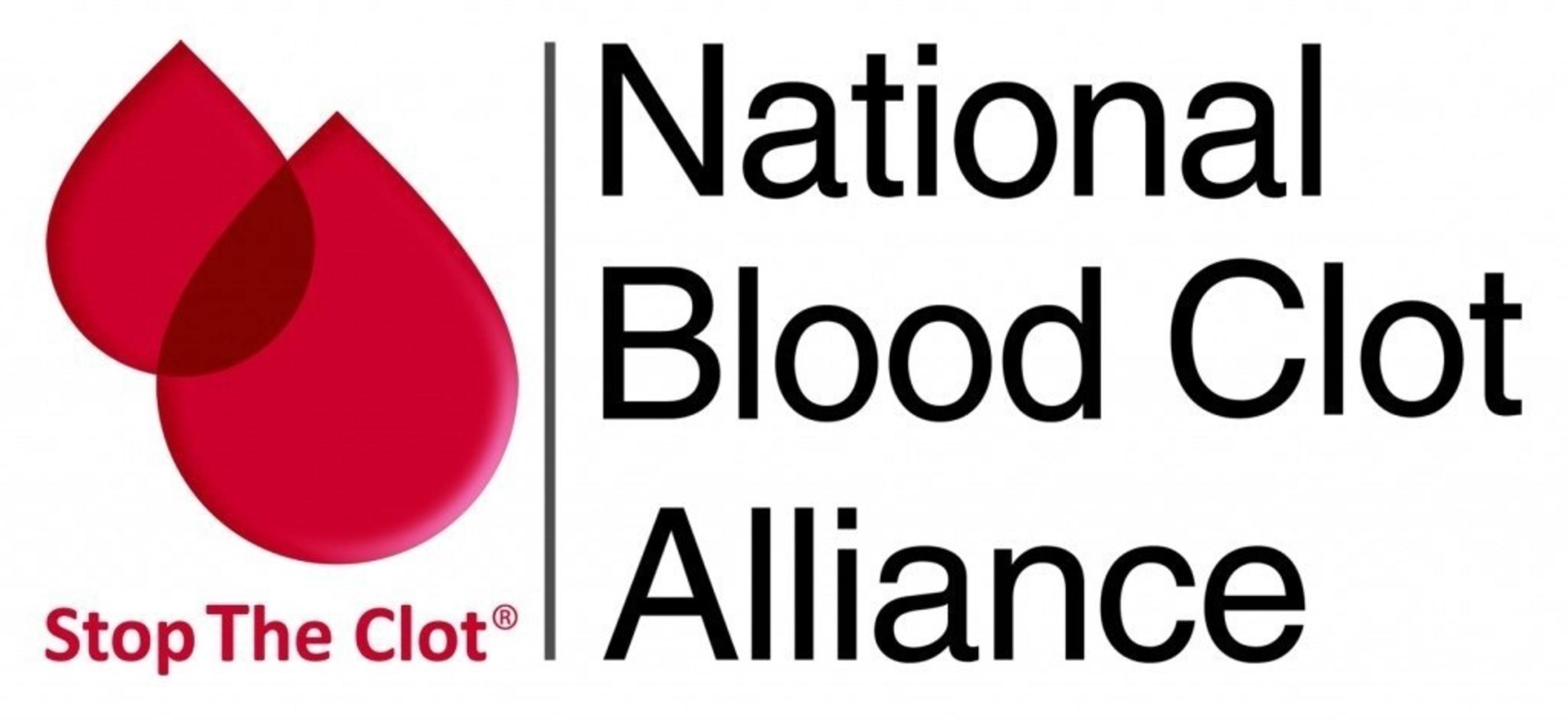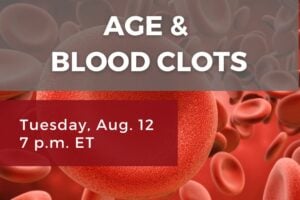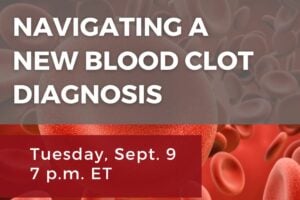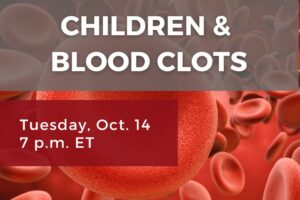Racial disparities and effects on children among areas of focus for researchers

NEW YORK, July 28, 2020 — The National Blood Clot Alliance (NBCA – stoptheclot.org), the nation’s leading patient advocacy organization focused on life-threatening blood clots, in partnership with the University of Oklahoma, has received an award through an Association of University Centers on Disabilities-Centers for Disease Control cooperative agreement to facilitate and advance research into blood clots as a complication of COVID-19. The award will also fund researchers’ efforts to raise awareness among certain high-risk populations including how COVID blood clot complications affect African Americans and pediatric patients.
Already responsible for more deaths annually in the U.S. than breast cancer, AIDS and motor vehicle accidents combined, blood clots have been commonly observed in patients hospitalized with COVID-19 dating back to the outset of the pandemic. The condition is often characterized by elevations in fibrinogen and D-dimer levels as well as by clinical events including deep venous thrombosis (DVT), pulmonary embolism (PE) and arterial events including stroke. However, little is known about the incidence, prevalence and outcomes of COVID-related blood clots in both adult and pediatric patients.
NBCA’s Medical & Scientific Advisory Board (MASAB) hopes to fill that gap in knowledge by coalescing data being collected across the U.S. into a central repository for information about COVID-related blood clots so that experts can begin to hone the most effective treatment regimens and best practices.
“As the complex clinical impacts of this global pandemic continue to emerge, medical experts in hematology and blood disorders continue to sharpen their understanding about the connection between COVID-19 and life-threatening blood clots,” says Alok Khorana, M.D., Professor of Medicine, Cleveland Clinic Lerner College of Medicine and NBCA MASAB Chair. “Therefore, it’s crucial that the collective knowledge and insights of experts in this field are leveraged effectively to fortify the work of our frontline clinicians to help optimize the care of all patients affected by COVID-19.”
Globally, more than 16 million people have been infected with the novel coronavirus to date, and more than 600,000 have died due to COVID-19, with medical experts in the field growing increasingly concerned as data suggest that about one-in-three individuals critically ill with COVID-19 will develop a potentially life-threatening blood clot. Equally concerning are reports that patients with milder illness, or even those who are asymptomatic or unaware that they are infected with the coronavirus, are developing dangerous blood clots.
“The National Blood Clot Alliance is steadfastly committed to ensuring that the highest standards of quality care are recognized by clinicians and accessible to all people affected by clotting disorders, including the unprecedented clotting being reported among individuals affected by COVID-19, or anyone who might experience a potentially life-threatening blood clot,” stresses Leslie Lake, President of NBCA’s Board of Directors and a blood clot survivor. “The blood disorders community needs to combine its resources and expertise to blunt the impact of blood clots and help build awareness among physicians and patients alike.”
NBCA’s key objectives of this work include:
- Development of COVID-19 Blood Clot Data Repository — Developing an online data repository to gather and analyze information regarding prevalence of venous and arterial thromboembolic events in adult and pediatric hospitalized, ICU and post-discharge settings
- Examining African American and Pediatric Populations at High Risk — Collecting and disseminating regarding rates of thromboembolic events among less-studied populations including African Americans and children
- Establishment of Best Treatment Practices — Planning and hosting a survey of best practices regarding blood clot treatments for hospitalized patients with COVID-19, ICU patients with COVID-19, and adult and pediatric patients discharged after hospitalization for COVID-19
- Educating Clinicians and Healthcare Professionals — Developing a narrative and/or systematic review that analyzes and interprets data from the surveys mentioned above as well as includes input from patients and patient advocates to educate healthcare professionals regarding COVID-19-related blood clot prevalence, incidence and anticoagulant best practices
Another critical component of the grant program is the development of a public awareness campaign to provide new knowledge and information about the association between COVID-19 and the development of blood clots to higher risk populations, the general public and healthcare professionals through educational materials made readily available online.
For more information about the risk factors and signs and symptoms of blood clots, visit NBCA’s website at www.stoptheclot.org.







